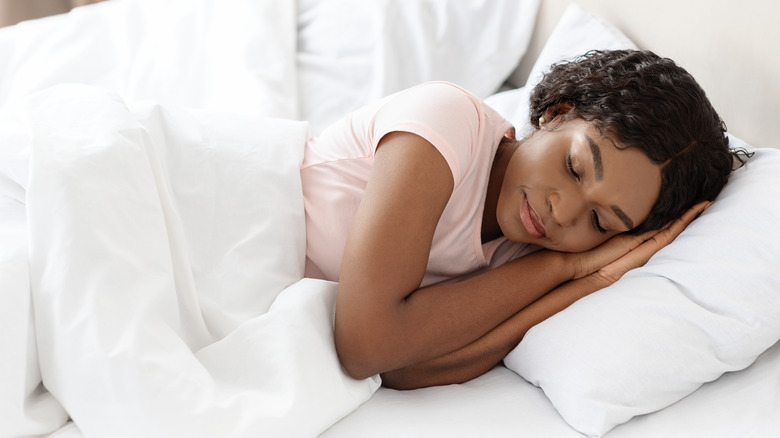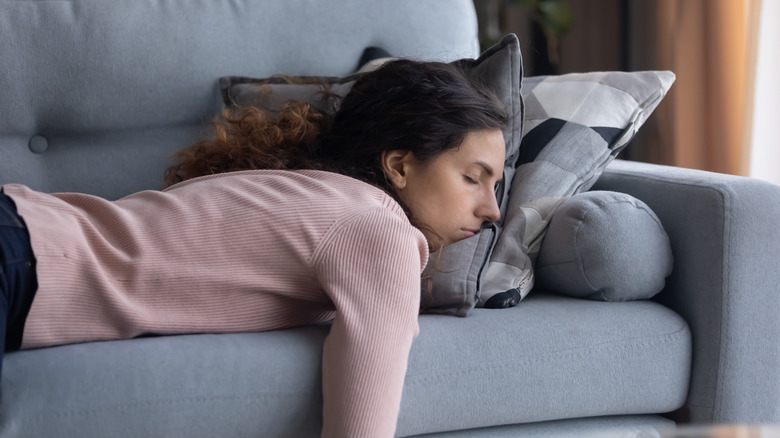You Should Stop Taking Naps If This Happens To You
Is napping good or bad for you? Napping can be good for you if you do it right. After all, sleep is vital for your energy levels and your heart health. Most adults need a minimum of 7 hours of sleep every night, but more than 1 in 3 people in the United States report not sleeping enough (via the CDC). So it's no wonder you'd want to nap when you can. On the other hand, not sleeping enough can lead to serious health problems — high blood pressure, type 2 diabetes, and obesity. Not getting enough sleep can also have an adverse impact on other health problems.
A telephone survey of 2,969 adults in the United States found that one-third of them take naps, according to the Pew Research Center. Naps can even decrease your risk of heart disease, according to a study published in Heart. However, that was in people who only napped once or twice a week.
Napping for 10 to 20 minutes — also known as power naps — can be beneficial and shouldn't make you feel groggy for a long time after waking up, according to the Sleep Foundation.
So, when are naps harmful to your health?
When you should stop napping
When you wake up in the morning, you immediately start to create a sleep debt. You pay that off — so to speak — when you go to sleep at night, and the cycle starts all over again the following day. If you allow a nap during the day, you might have trouble sleeping at night. Naps become bad for you if they affect your sleepiness at night, and when your sleep is affected, you'll start to have trouble getting to sleep and waking up when you need to in the morning. You'll also likely experience difficulty staying asleep or getting a restful sleep (via Cleveland Clinic).
If you suddenly find yourself needing naps every day, see your doctor. You might have a sleep disorder or other health condition causing sleepiness, which needs to be addressed (the Mayo Clinic).
Studies have found links between napping and obesity, inflammation, higher risk of stroke, and type 2 diabetes (via Journal of Clinical Medicine). It seems that long naps — over 60 minutes — are the problem. This study found a correlation between long naps and health problems, including a 34% higher risk of heart disease and a 30% risk of death.
The bottom line? If you can get a short nap of 10 to 20 minutes early in the day, and it doesn't affect your sleep, you should be fine. However, you should stop taking naps if it affects your quality of sleep.

